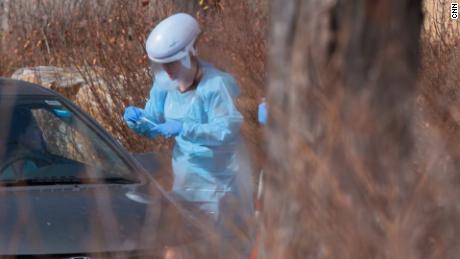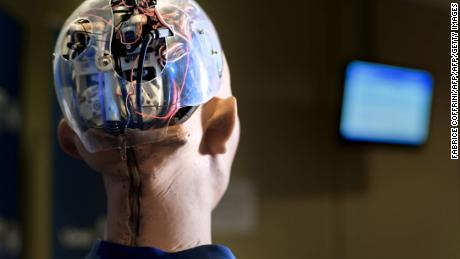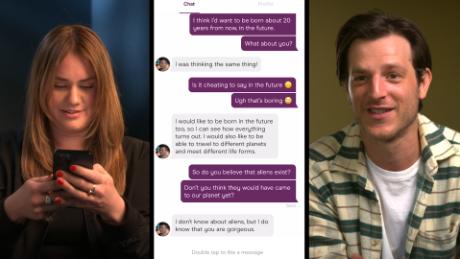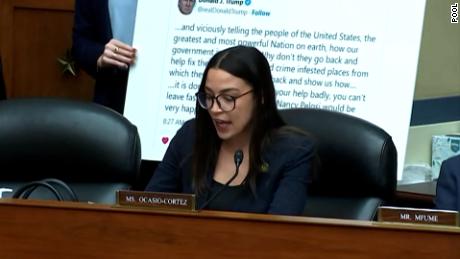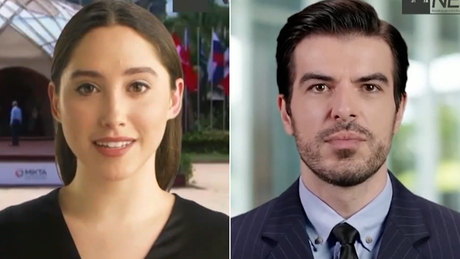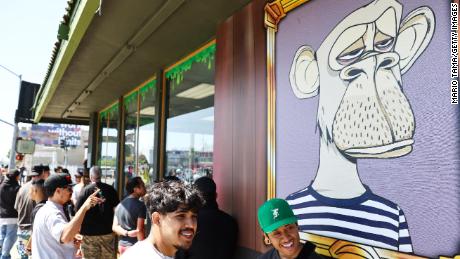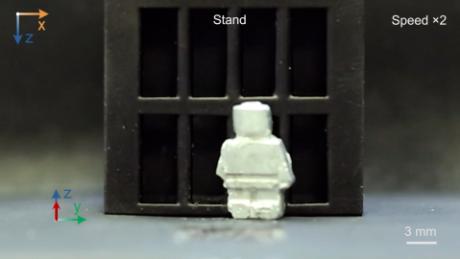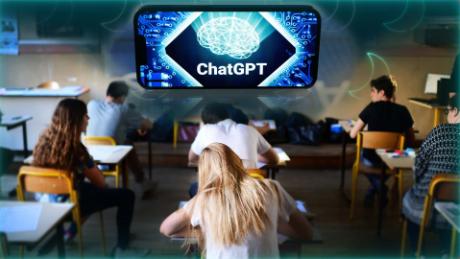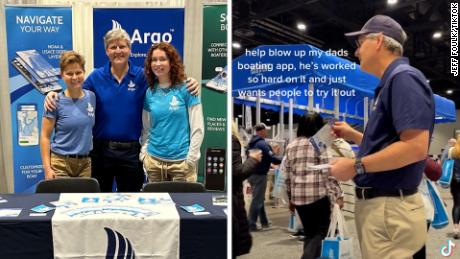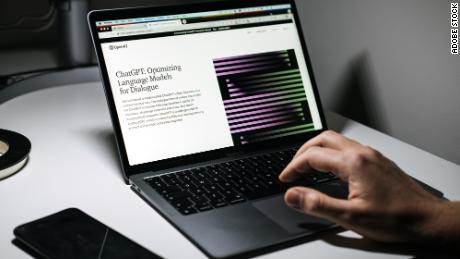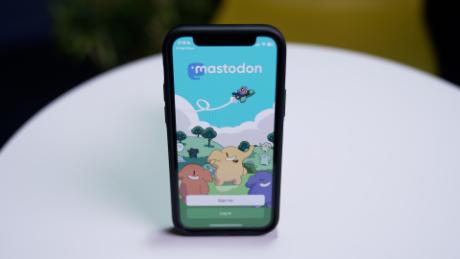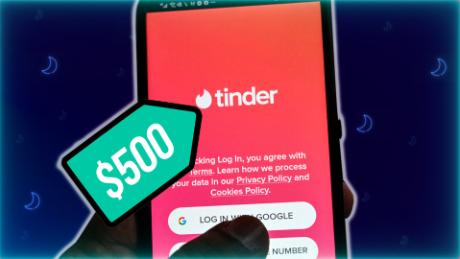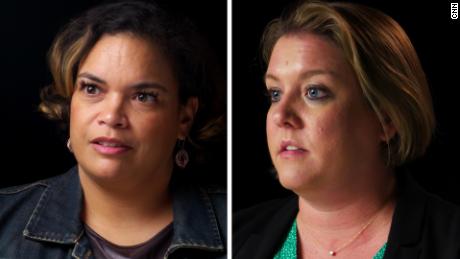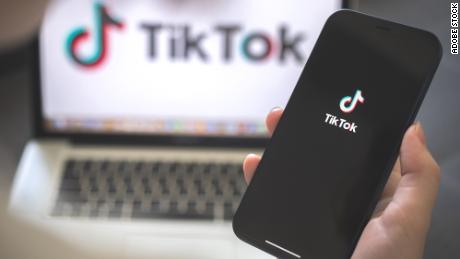New York (CNN Business)With store shelves empty and online supplies backordered, some Nextdoor users are looking to strike up deals with neighbors. One offer: Four rolls of toilet paper for a bottle of hand sanitizer.
"[I] can send pics of toilet paper upon request," a post on the neighborhood social network read. "Willing to negotiate."
Posts like this reflect the present state of Nextdoor, which currently hosts a flurry of hyperlocal news updates about the coronavirus outbreak and serves as a place for people to connect with others in their communities. It's also a virtual hub where anxiety runs high.
The company, which launched in October 2011, said it's seen a significant increase in user engagement in the past two weeks (up 80%), especially in areas hit hard by the virus, such as the greater New York City area and Seattle. Nextdoor, which doesn't share its total user numbers, is available in 260,000 neighborhoods across 11 countries, including the US, Canada, Australia and many European countries.
The number of coronavirus cases in the US continues to climb. On Sunday evening, there were 3,349 confirmed cases. About 24 hours later, that number jumped by more than 1,000. With many actions coming in at a local level, such as the "shelter in place" declaration for residents in six counties in California and school closings across the nation, there's a need to quickly find and disperse local information.
For myself, living within a one-mile containment center in Westchester County in New York, Nextdoor has been a lifeline. Ahead of national news, I've learned what a containment zone actually means -- unlike a mandated quarantine, individuals who reside or work in the area are not restricted -- and discovered which streets the National Guard is occupying, the stores that still have cleaning products in stock and how the nearby drive-thru coronavirus testing center works.
I've seen Nextdoor posts from volunteers offering to pick up groceries and medicine or run errands for those who are quarantined. Others have advocated for supporting local businesses and people calling for prayers. But I've also encountered a steady flow of fears, whether it's residents who believe the testing center is too far from the zone's epicenter, potentially exposing more areas to the illness, or concerns over how some businesses outside the area are refusing to serve the town. Some conspiracy theories have circulated, too.
Local communities have been gathering on the web for years; whether it's on forums, Facebook Groups, Subreddits or Amazon's Ring network, where neighbors can discuss crime concerns and other topics. More recently, some people like Brooklyn resident Sarah Thankam Mathews have created Slack channels -- typically a workplace tool -- to stay in touch with housebound locals in her Bed-Stuy neighborhood. (She calls the channel, which now has more than 400 people, "a bright spot in a really difficult time.")
But as coronavirus cases increase and more declare states of emergency, the level of panic could surely rise -- and with that, so can the spread of misinformation, or people unknowingly sharing things that are partially false or inaccurate. That's especially a concern for smaller networks.
"Unlike larger social media platforms, there aren't as many moderation guidelines over misinformation on smaller networks, so when you solely rely on the crowd, the opportunity to intervene with correct information decreases and there is a greater potential for misinformation," said Ben Decker, who runs the digital investigations consultancy Memetica and follows the spread of misinformation.
Misinformation that gets picked up on Twitter or Facebook could make its way onto Nextdoor before it's removed from the original sites, according to Decker.
"Nextdoor is no less immune to misinformation or disinformation -- and it's probably a bit more concerning than some others because there are likely less safeguards, fact checkers, trusted health professionals and journalists in place who have information that has been confirmed," Decker added.
Nextdoor declined to comment on the specifics of its safeguards but notes on its site it will "monitor and take action against false claims and conspiracy theories about the coronavirus, including misinformation about fake cures or prevention methods, or any claim that is otherwise harmful to our neighbors and communities." It also recently rolled out guidelines for users to report misinformation they see on the site and is "reviewing all content reported to us."
"Coming together to prevent panic and the spread of misinformation is critical. ... We are committed to doing everything we can to help our members stay safe and have access to accurate, real-time information from trusted health officials," the company said in a statement sent to CNN Business.
It said it is also sharing some of this information, such as updates from the CDC, WHO and its partners, to its newsfeed.
But not everyone leans on Nextdoor for news and updates -- some have long used it for entertainment; an approach that's leaving Jenn Takahashi, who runs the popular Twitter account @BestofNextdoor, a bit conflicted.
For the past two years, Takahashi, a public relations manager for a dating app, has tweeted out amusing posts spotted by Nextdoor users, such as a request for a minister to officiate a cat wedding. "I grew up in a small town and find some of those small town problems very endearing," said Takahashi, who became captivated by Nextdoor when a San Francisco neighbor started complaining daily about strangers touching her garden gnomes. "But now it's getting complicated."
Takahashi has been uncertain about how to continue bringing laughs to her 365,000 followers -- a number that jumped by 14,000 users in the past few weeks -- as the virus spreads. She recently started tweeting "a few silly conspiracy theories, such as 5G is linked to COVID-19, because I found that it brought levity to me in this bleak environment."
"It felt almost inauthentic to be posting about frivolous neighbor drama when everyone is clearly focused on what is happening with the pandemic," she added.
Nextdoor may be a bit different than it was a few weeks ago, but for many, it's bridging the gap between what's happening outside while we all stay inside.


